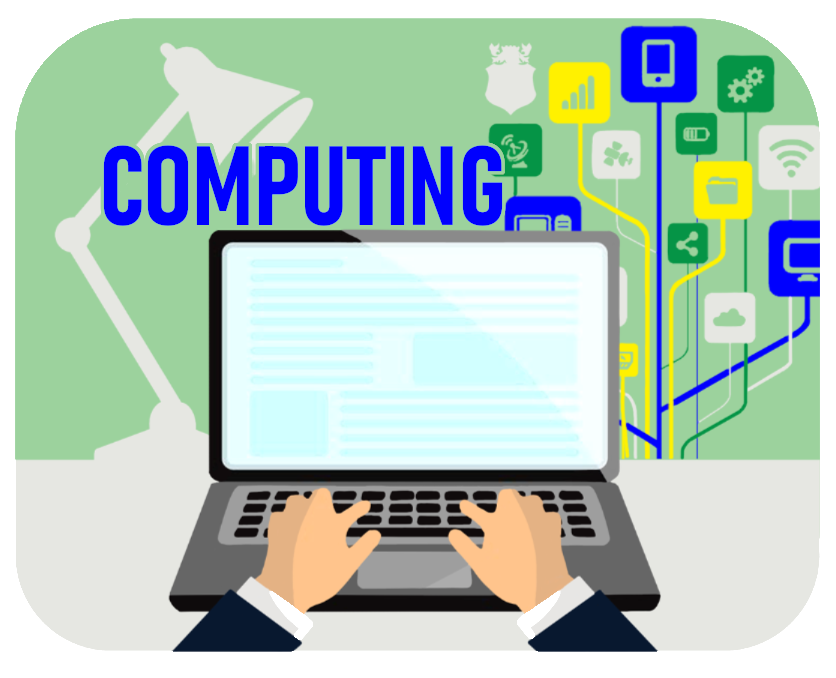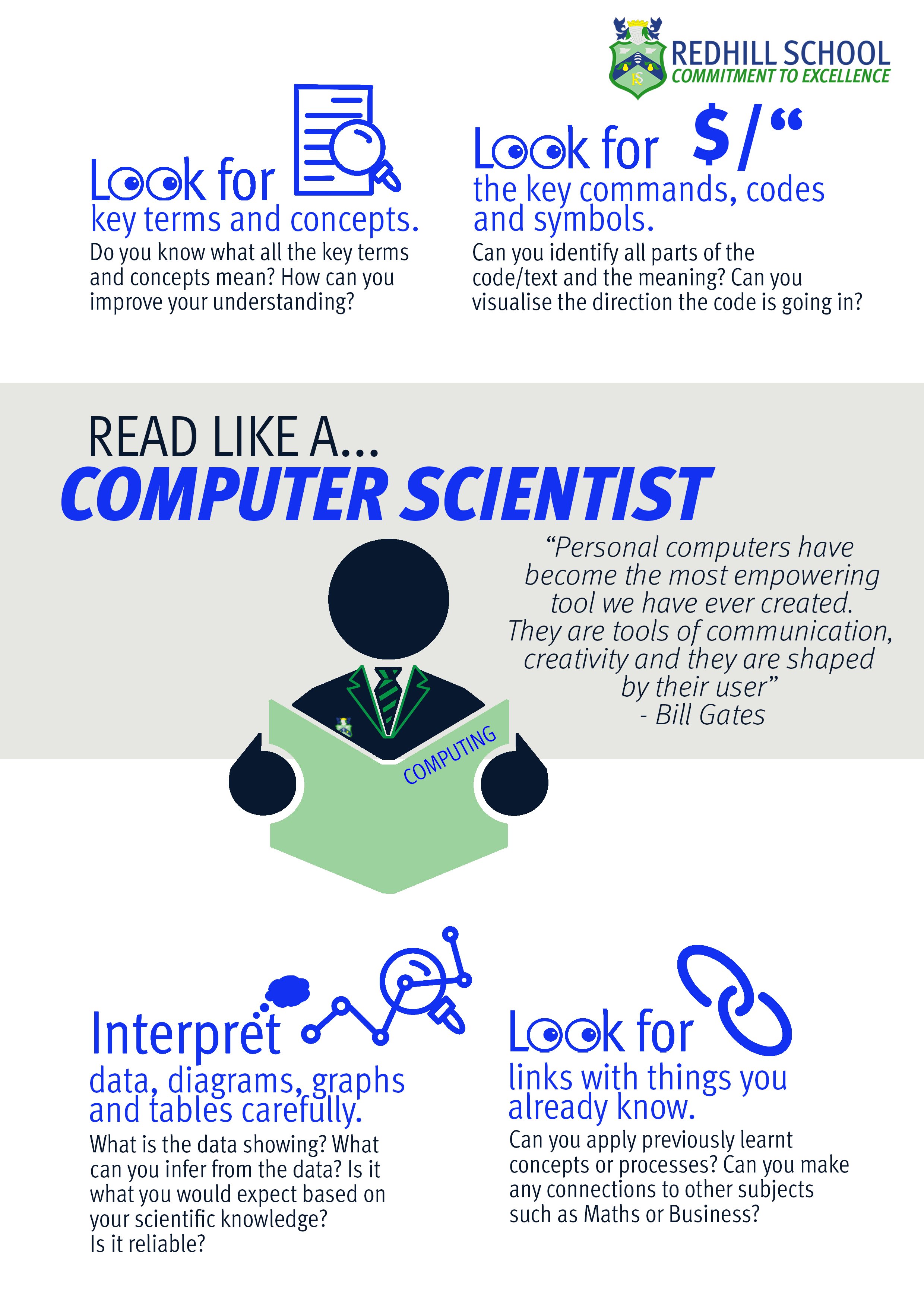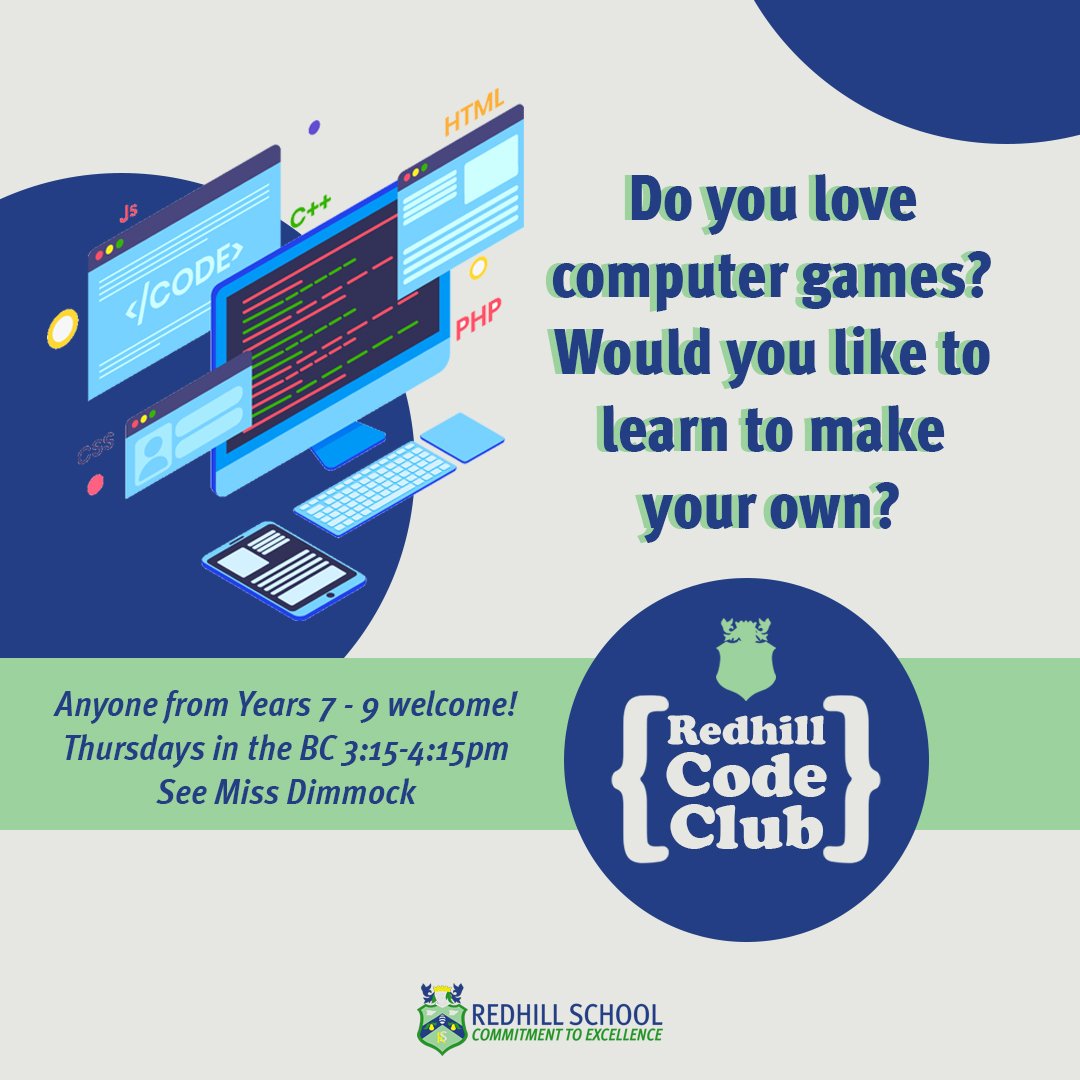Computing
SUBJECT OVERVIEW
At Redhill we believe that it is important for all students to experience a well-rounded approach to Computing. Throughout key stage 3 all students will experience many aspects of Computing which include (but is not exclusive to) understanding how your computer works, online safety, project planning, spreadsheet modelling, networks, programming and much more.
This will allow students at Key Stage 4 to make the option choice that is correct for them, we currently offer BTEC Digital Information Technology.
We have 2 dedicated I.T. rooms for students to develop their Computing knowledge. Students work is stored on the google classroom and can be accessed from home (via an internet connection). For all Extended Learning that students complete we focus on using either cloud or open-source software so students can carry out their work at home, or during extended periods of absence.
INTENT
The aim of the Computing department at Redhill School is to provide an engaging curriculum that allows students to develop into digitally literate individuals. We aim to provide students with flexible skills that allow them to adapt to a constant changing and challenging area of study and to be responsible users and potential creators of technology in their daily lives now and in the future.
Computing has deep links with Mathematics, Science, and Design and Technology, and provides insights into both natural and artificial systems. Students will study the Computing curriculum during their Computing lessons and within each individual subject. All students throughout the school will study the three main areas of the curriculum; Digital Literacy, Computer Science and Information Technology. Computing is designed to enhance students’ knowledge of an ever-increasing technical world and provide them with the skills to access it safely and use it proficiently during their studies in year 7, 8 & 9.
At Key Stage 4 students will study for accredited qualifications in Computing and will gain a level 1/2 qualifications in BTEC Digital Technology. This will also assist in developing their skills and enhance their learning across the curriculum and prepare them with transferable skills that can be applied to further education and the world of work. All pupils and benefit from Information Technology (IT) as a tool, to allow a greater and more varied route for accessing the curriculum, ensuring significantly higher achievements.
Through computing & IT lessons pupils will learn:
How to identify and operate computer equipment effectively to achieve desired goals.
How to work safely using computers and online (E-safety).
How to use ICT for Word processing, Presentation, Desktop Publishing, Databases and Email.
How to utilise the internet safely and efficiently and the information that it provides.
How computer programs and software work and how to develop and de-bug software programs.
How computers and electronic devices work.
How to create and manipulate a range of digital media for a given purpose.
Spiritual Moral Social and Cultural development
Spiritual development – Students can sustain their self esteem in the learning area of ICT but being able to be resilient through trying out different techniques. Through computational thinking at KS3 students develop the capacity for independent through and critical thinking. When studying computing students will reflect upon the reoccurring patterns in nature which will allow them to consider and celebrate the wonders and mysteries of life. Students are also enabled to acknowledge the advances in technology and an appreciation for human achievement. Raising the awareness of the ways in which communication on the Internet can be a medium to express SMSC values and the responsibility that goes along with this.
Moral development – Students will frequently visit ICT legislation to enable them to work in a responsible way when using ICT which will give them the opportunity to look at different case studies and reflect on the consequences of people actions to allow them to be responsible learners. Students also look at the importance of staying safe online including how to behave in a responsible and moral manor distinguishing the difference between right and wrong. This provides students with an awareness of the moral dilemmas created by technical advances. Listening to the through to of others and responding appropriately is something that students do throughout years 8-11 by discussing view points on various aspects of ICT and discussing them on topics such as ‘what makes a computer a computer’. Students will explore the aspects of real or imaginary situations and this enables them to reflect on the possible consequences of different actions and situation. It can raise issues such as the question of is it morally correct to have computer games whose main aim is killing and violence, and the debate of whether it is fair that some people in this country and in others cannot use the Internet. Using real life case studies, students will also consider issues surrounding misuse and access rights to personal information, other moral issues surrounding the topics of e-waste and the digital divide are also explored through the case studies. This encourages students to draw conclusions through evidence rather than their preconceptions whilst allowing students the time to reflect on the origins of their own personal perceptions of a given topic.
Social development – Students will frequently collaboratively work which will encourage social development. ICT also helps all students to express themselves clearly and to communicate. As students progress through years 8-11 they will consider more complex social needs and are encourages to research and work collaboratively to find appropriate solutions to issues that may affect particular groups within society. Students are also thought the importance of acceptable communication between each other using ICT in social situations, including social media. Students are taught about different historical figures (e.g. Alan Turing) and how they were treated due to their lifestyle or beliefs and how in a modern society this is not acceptable. This is built on to then establish boundaries about what is socially acceptable and what is not.
Cultural development –Students have the opportunity to break through linguistic and cultural barriers. Whilst studying various aspects of ICT students are asked to reflect on how different cultures are portrayed on the Internet and why or who is portraying them in this way. Students are also challenged tot think about how different cultures access and use the Internet and what implications this has on the individual and the culture. Students will develop a deepening understanding of the awareness of just how much ICT has (and continues to) affect our culture. Students are encouraged to appreciate how different cultures have contributed to technological developments.
Useful Links
BTEC Tech Awards Digital Information Technology (2022) specification - https://qualifications.pearson.com/content/dam/pdf/btec-tec-awards/information-technology/2022/specification-and-sample-assessments/btec-tech-award-digital-information-technology-spec.pdf
Scratch online - https://scratch.mit.edu/
Coding projects - https://studio.code.org/projects/public
Online safety advice - https://www.nspcc.org.uk/keeping-children-safe/online-safety/






